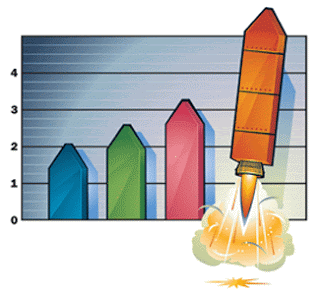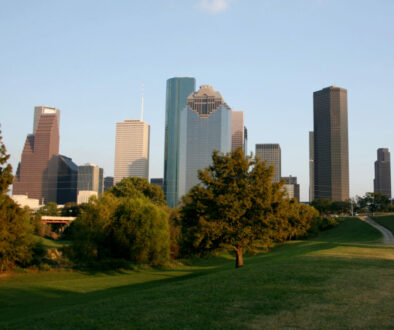Houston, Keep Your Seatbelts Buckled As Our Economy Takes Off
Newsweek published an article this weekend titled, Houston, We Have No Problems, that every advocate of Houston would want to read. It addresses the varying aspects of what makes our city so hot, and it wasn’t talking about our summer heat.Houston’s cash registers are ringing with big ticket items, construction crews are fully employed, and upscale restaurants are cooking. We are experiencing an unsinkable residential real estate market, Class A office space is virtually full, and a variety of construction projects are underway to keep up with demand. The article also purports that pessimists here are as rare as Birkenstock sandals and Obama ’08 stickers in ExxonMobil’s parking garage.
The article informs its readers that The Texas Medical Center is Houston’s biggest employer, not the oil industry, clarifying that Houston isn’t just about oil. However, not mentioned in the article were other powerful facts about the Medical Center that predicts its future impact. It is the largest medical center in the world and will be the seventh largest downtown district in the country when current construction projects are completed. There are more buildings going up in the medical center than in the rest of Houston combined. Considering that Houston is leading the rest of the country in construction, one could assume that the pulse of the city’s medical industry won’t be slowing anytime soon and will largely contribute to the city’s future global positioning.
Referring to the 1981 oil bust, the editorial reminds us that back then the oil and gas industry was domestic and blue-collar, but today it is international and white-collar.
Remember John Travolta’s “Urban Cowboy” in 1980 during the last oil boom? The movie was a classic portrayal of Houston at that time as being a redneck, oilwell-ravaged town. Well, “We’re not that kind of city anymore,” Travolta might have said in a quasi “Michael” movie production referring to our modern Houston rather than to his atypical angel stereotype.
Instead of cowboy, think suburban geek, the Newsweek column asserts. Houston has 70,000 engineers and architects, a concentration 60 percent higher than is typical for the United States. Houston’s role in energy is not as the roughneck city this time around. It’s role is “as the technical, trading and administrative center of the worldwide industry,” says Joel Kotkin, an internationally-recognized authority on global, economic, political and social trends, in his book, The City: A Global History.
There’s more, oil isn’t the only energy game in town. We’ve drilled down even further within one industry. Houston also leads the future of alternative energy. So, referring to 1981? That was then, this is now. What a difference 27 years makes!
The article also touts Houston’s port as one of its strengths, the second busiest port in America with rising exports. Houston’s Gulf Coast has long powered the growth in southeast Texas and has seen its trade activity more than double since 2003. Houston’s upward movement as a major player in international commerce, continued influx of business relocations, increasing worldwide trade, the benefits and advantages associated with Houston’s Foreign Trade Zone, and the city’s ongoing investment in the expansion of port terminal facilities paved the path for continued acceleration as a global leader in international commerce. As with manufacturing, Houston’s international commerce and transportation sectors are trucking along in the speed zone and won’t be braking anytime soon.
“More important than gold and diamonds are people. This critical resource, more than anything, accounts for Houston’s headlong drive toward becoming not only the leading city of Texas and the South, but also a player on the global scene: it is emerging as one of the world’s great cities.” says Joel Kotkin, in another publication, Lone Star Rising.
Since it will take people to make this prediction happen, no problem, Houston is ready to forge forward. We have all the right stuff. Kiplinger’s July 2008 issue puts Houston as the #1 place to live, work, and play in America. Kevin Stolarick, research director at the Martin Prosperity Institute, a think tank that studies economic prosperity, highlighted cities for Kiplinger that didn’t just have strong past performance, but also had all the ingredients for future success. And, one key to a bright future, the Kiplinger article emphasizes, is a healthy shot of people in the creative class. People in creative fields — scientists, engineers, architects, educators, writers, artists and entertainers — are catalysts of vitality and livability in a city.
To further bolster the city’s launch into its promising, anticipated future that lies ahead, the younger generation is coming to help pilot the passage. Houston is the #1 city in the U.S. for recent college grads, according to Forbes. Not only do we already have the right people, we are filling the roster with more of the right stuff to take over the reigns.
To tie up the message, Newsweek’s article bespeaks Houston’s characteristics as uniquely situated to capitalize on the longstanding megatrends that are transforming the global economy. Its Medical, Energy, and Trade Sectors are shining stars and herald the city’s importance in the global arena.




